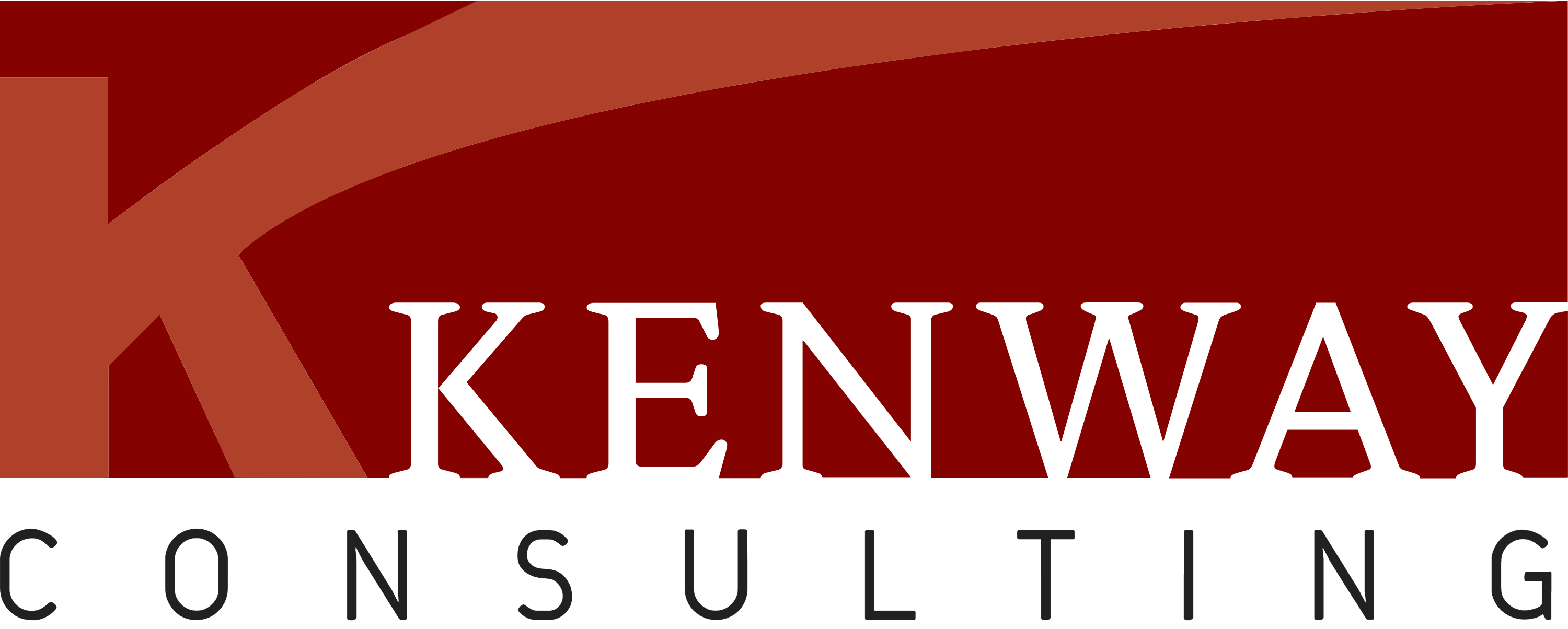
Data Governance Consulting
Why Data Governance
Data has become the lifeblood in today’s world – essential to running key company operations, driving decisions and informing strategies in nearly every industry. As the volume and complexity of both structured and unstructured data increase at an exponential rate, so, too, does the need for a discipline to maximize the value of data, manage risks and reduce costs. Without this discipline, organizations will lack the ability to discover novel insights through trusted analytics, become exposed to the risks of financial penalties and reputational damage as a result of non-compliance with data regulations and be left behind as competitors forge ahead into the realms of increased digitization, Big Data and advanced analytics.
Thankfully, Data Governance consultants can help. A well-crafted Data Governance strategy is fundamental in today’s fast-moving and highly competitive enterprise environment. As organizations continue capturing massive amounts of diverse internal and external data, there is a growing need to understand and articulate how your business can rely on and drive value from this strategic asset through well-governed, consistent processes and responsibilities.
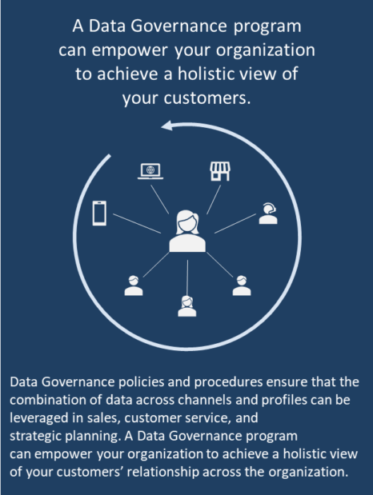
Explore the Data Governance case studies above.
What is Data Governance
Data Governance is the collection of clearly defined policies, procedures, standards, processes, roles and responsibilities that ensure the effective and efficient use of data in enabling an organization to achieve its goals. At its core, a Data Governance strategy defines who can take what action, upon what data, in what situations and using what methods.
Business drivers will shape the structure of an organization’s Data Governance program, which will in turn inform the strategic, tactical and operational roles and responsibilities required to carefully control the capture, storage, maintenance, consumption and destruction of data across the enterprise. If a business driver in your Data Governance strategy is to ensure compliance with data privacy regulations, for example, client data will need to be managed securely as it flows through your business. Retention requirements (i.e., history of who changed what information, when and how long you retain client data before destroying it) will be defined to ensure compliance with relevant government regulations, such as the California Consumer Privacy Act (CCPA).
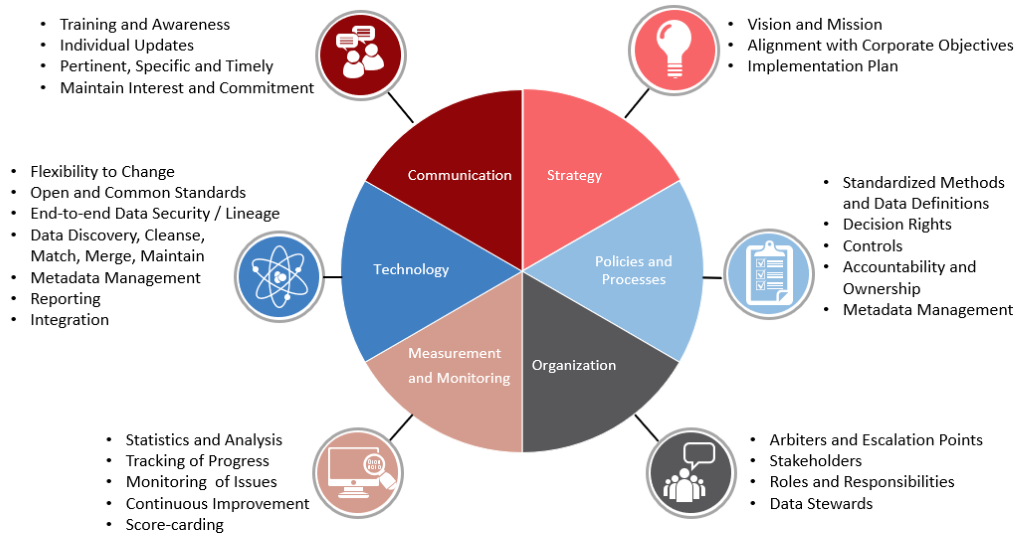
Read our white paper to get more insights into Data Governance theory, frameworks and operating models.
Kenway’s Data Governance Strategy
For Data Governance to be successful, an organization must first understand how a Data Governance program can align with its business strategy and drive long-term, sustainable value. At Kenway, we enable this understanding by partnering with organizations to identify the most critical pain points and high-value use cases while establishing a Data Governance mission and vision in alignment with corporate objectives.
After understanding where the Data Governance program will drive the most business value, Kenway’s Data Governance consultants assess an organization’s Data Governance maturity across six key domains. The results of the assessment are then synthesized with the top-priority use cases to create a clear roadmap and actionable plans to begin implementing a Data Governance framework and addressing your organization’s most critical needs.
Once a roadmap and actionable plans are defined, Kenway partners with organizations to translate the plans into results. From writing anchor and identifier policies, to building a Data Governance organization and framework (i.e., centralized, hybrid, decentralized) that best suits a firm’s needs, to implementing Data Governance tools and technologies (e.g., Collibra), Kenway has the passion, expertise and skills needed to partner with you at any point in your Data Governance journey and begin maximizing the value of your data.
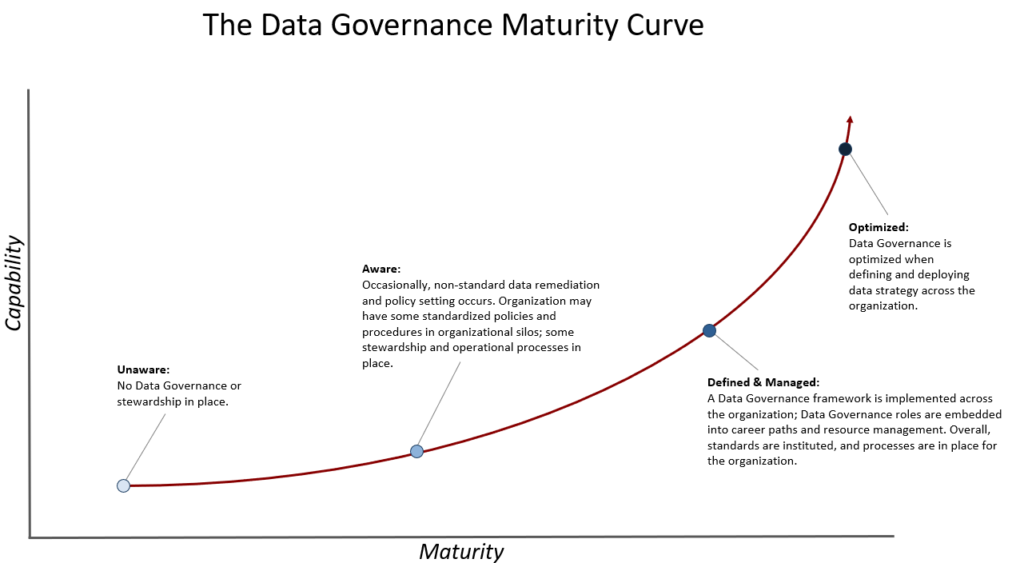
Industry Recognition
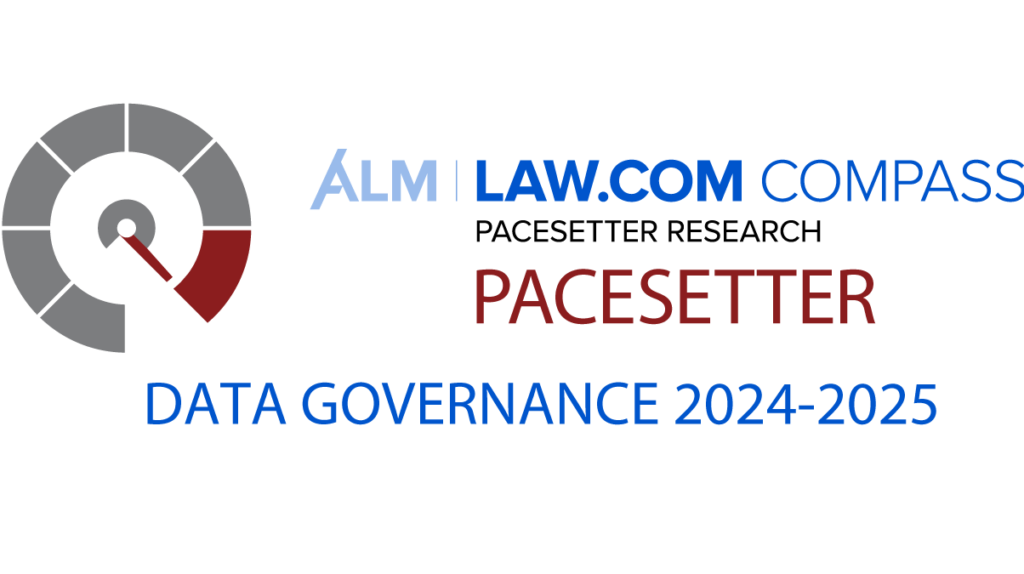
Kenway Consulting Named “Data Governance Pacesetter” in New ALM | Law.com Compass Research
The published report delves into Data Governance and its emerging role in shifting data management strategies to focus on connecting a client’s IT strategy with its business strategy, informing and guiding both to enable organizations to use data as an asset.
Get to Know Our Experts
As an organization, we are driven by our Guiding Principles. This means acting with integrity and communicating effectively to provide our clients with the highest quality of consulting services. Our experts embody these principles in everything they do, and have combined experience working with and for Fortune 500 companies in regulatory, compliance and technology capacities, preparing these clients for the road ahead.
Brenden brings passion and a wealth of experience as a transformational data and analytics leader within Kenway. His industry experience in Finance and Healthcare working in startups through Fortune 100 companies on the leading edge of people and technology change enable him to keenly understand the people, process, and technology challenges and opportunities of our clients. He has built and matured data and analytics capabilities and teams to meet strategic organizational goals, accomplish merger & acquisition activity, and enable digital transformation. His principal areas of focus are Data Governance, Data Management, Business Intelligence, and leading through change.
Jeanne-Marie has helped many Kenway clients navigate their Data Governance and Data Management challenges. Her leadership has helped clients address strategic goals with projects ranging from assessments to full scale enterprise wide implementations. More recently she has helped clients’ address data privacy and compliance issues due to new regulations and laws in that space. Before joining Kenway, Jeanne-Marie spent 20+ years at Accenture, and led the strategy, delivery and operations of their Master Data Management solution. In that role she guided many internal and client-facing Data Governance and Data Management projects.
“The single-most important predictor of Data Governance implementation success is Change Management. Failure to properly educate and influence stakeholders that Data Governance is done “With and For” them rather than “To” them will significantly hinder or fail an implementation. If successful, Data Governance will be a core cultural action rather than an obstacle.”
“When embarking on a Data Governance or Data Management program start with a non-negotiable program outcome, such as compliance with regulatory or privacy regulations, which will prove to be resilient in the face of company re-orgs, leadership changes and evolving strategies. It will help you retain budget and resources and successfully deliver your program.”
How Can We Help?
REQUEST A CONSULTATION



